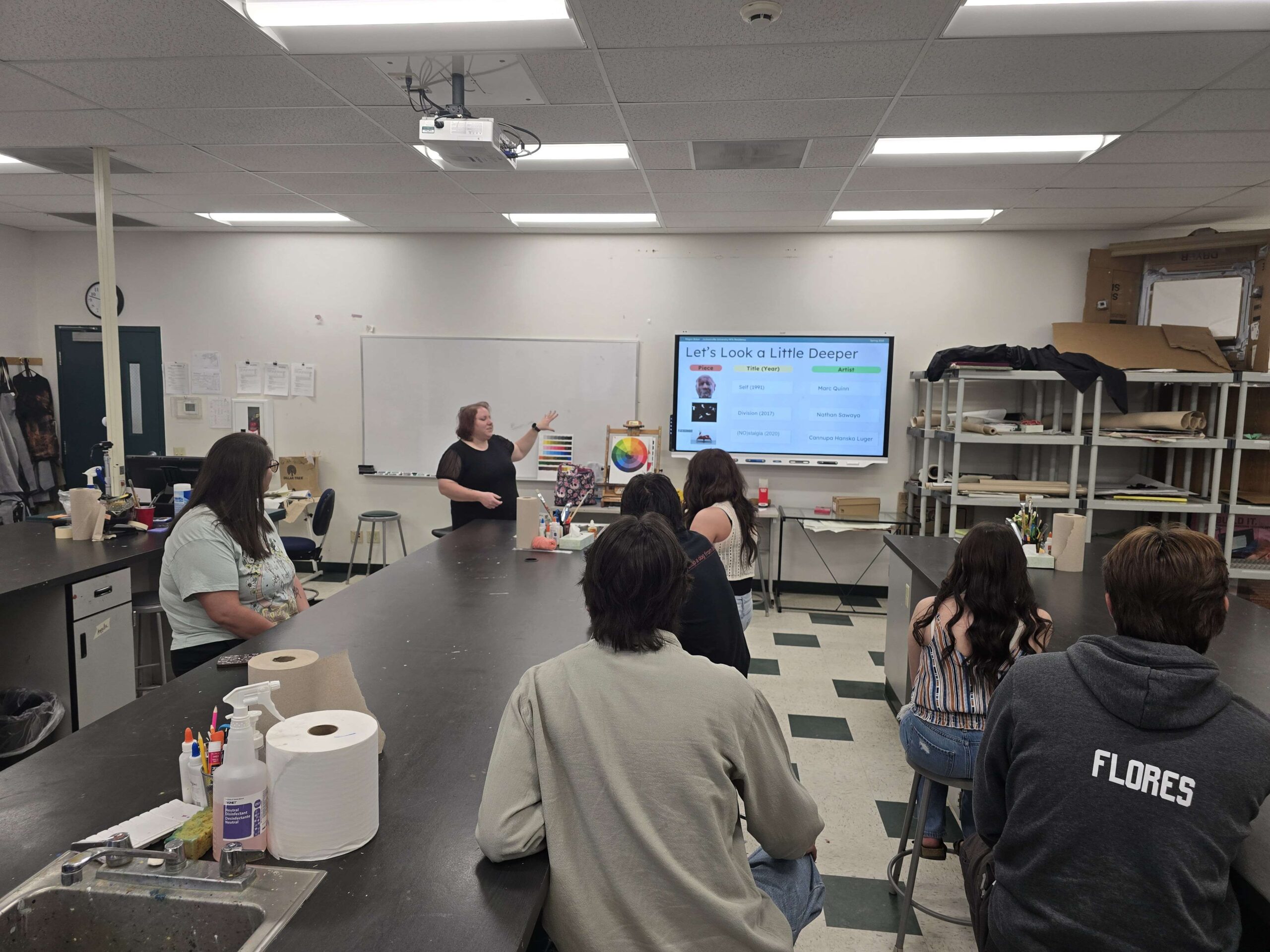
Teaching Portfolio
My name is Megan Baker and I will complete my Masters in Fine Arts in Visual arts in June 2026. I was inspired to enter the teaching profession by watching my mother’s journey from para-educator to special education teacher. Her commitment to education, not only for her own children, but for all people has been a constant source of strength.
My passion for teaching has only increased by my experience teaching undergraduate students at the community college level. These students are often juggling school and working full-time, and come from diverse backgrounds and lived experiences. Meeting these students where they are and seeing them excel has shaped my teaching philosophy.
Teaching Philosophy
I believe teaching is a collaborative and evolving practice that should be rooted in empathy, equity, and engagement.
Universal Design for Learning
My teaching philosophy is grounded in the principles of universal design for learning (UDL). I emphasize flexibility, accessibility, and intentionality in all of my courses to ensure that students have multiple ways to engage with content and demonstrate understanding. I do not expect students to conform to a mold when it comes to learning material. Instead, I strive to create inclusive environments where diverse learning styles, abilities, and backgrounds are not just accommodated but valued as assets in the shared educational journey.
Holistic Education
The core of my pedagogical approach is the belief that students must be seen and supported holistically. They come into the classroom with unique strengths, struggles, and ways of knowing. Viewing students holistically means that academic success comes from more than just studying. It is deeply intertwined with mental, social, and emotional well-being. Put succinctly, I believe students need Maslow before focusing on Bloom.
I aim to meet students where they are academically, personally, and developmentally. To do this, I cultivate an environment of trust, flexibility, and mutual respect. Whether that means offering alternative means of assessment, adapting course materials for differing modalities, or creating office hours outside of the office, I remain responsive to the needs of students while upholding high academic standards.
Experiential Learning
I am a believer in the power of experiential learning as a vehicle for creating understanding and transformation. When a student actively engages with real-world problems, works across disciplines, and reflects critically on their experiences, they truly experience praxis. This cultivation of creative problem solving and critical thinking only serves to increase student confidence and self-efficacy. It helps them realize that what they learn in the classroom has relevance and that they are capable of making meaningful contributions in and out of the classroom.
Curriculum Vitae (CV)
Courses Taught
Adjunct Instructor Digital Media Design, Klamath Community College, 2019 – Present
- CIS 111: Digital Game Development I
- CIS 195/L: Introduction to Web Page Design and Lab
- CIS 196/L: Intermediate/Advanced Web Development and Lab
- CIS 245/L: Multimedia Project Management and Lab
- CIS 297: Digital Media Design Capstone
- MMT 239/L: Digital Drawing/Adobe Illustrator and Lab
- MMT 241/L: Graphic Design for Web and Lab
Reflections & Teaching Effectiveness
Sample Materials
Example Course Materials
Residency Guest Lecture: Sculpting Outside the Box
Example Syllabi
Please note that all syllabi were created in accordance with the required syllabus template at this institution.